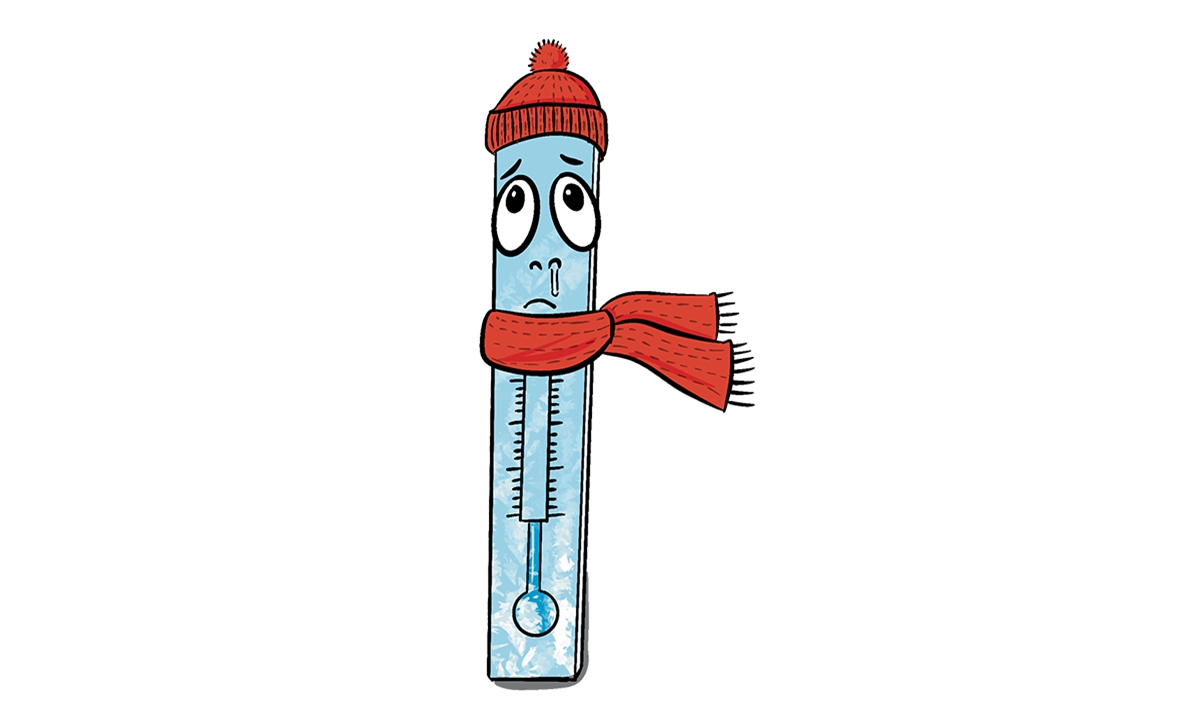LEARNING CHINESE / DIALOGUE
Learning Chinese
Chat attack
cold wave/ 寒潮/ (háncháo)
A: It was really windy this morning.
今天早上风可真大。
(jīntiān zǎoshànɡ fēnɡ kězhēndà.)
B: Another cold wave is on the way.
又一波寒潮来了。
(yòuyìbō háncháo láile.)
A: Wasn't there a prediction about global warming a long time ago? Why are we dealing with cold waves one after another?
不是早就预测全球变暖吗?为什么寒潮还是一波接一波呢?
(bùshì zǎojiù yùcè quánqiú biànnuǎnma? wèishénme háncháo háishì yìbōjiēyìbōne?)
B: An expert has analyzed that global warming has increased the temperature of the Arctic, and the "fence" westerly belt is no longer strong; the La Niña phenomenon during the peak period of development has caused the Pacific Sea temperature in the central and eastern equatorial to cool.
专家分析了, 全球变暖使北极温度升高,"围栏"西风带不再牢固;发展盛期的拉尼娜现象, 使赤道中东部太平洋海温变冷。
(zhuānjiā fēnxīle, quánqiú biànnuǎn shǐběijí wēndù shēnɡɡāo, wéilán xīfēnɡdài bùzài láoɡù; fāzhǎn shènɡqīde lānínà xiànxiànɡ, shǐchìdào zhōnɡdōnɡbù tàipínɡyánɡ hǎiwēn biànlěnɡ.)
A: So global warming is only part of the megatrend.
那么全球变暖只是大趋势的一部分。
(nàme quánqiú biànnuǎn zhīshì dàqūshìde yíbùfen.)
B: The north-south temperature gradient in the northern hemisphere decreased, and the balance of the climate system was broken. This gave cold air the opportunity to drive southward.
北半球南北温度梯度减小, 气候系统平衡被打破, 冷空气就有机会长驱南下。
(běibànqiú nánběi wēndù tīdùjiǎnxiǎo, qìhòu xìtǒnɡ pínɡhénɡ bèidǎpò, lěnɡkōnɡqì jiùyǒujīhuì chánɡqūnánxià.)
A: Better buy a thick down jacket.
还是买件厚羽绒服靠谱。
(háishì mǎijiàn hòuyǔrónɡfú kàopǔ.)

cold wave/ 寒潮/ (háncháo)
A: It was really windy this morning.
今天早上风可真大。
(jīntiān zǎoshànɡ fēnɡ kězhēndà.)
B: Another cold wave is on the way.
又一波寒潮来了。
(yòuyìbō háncháo láile.)
A: Wasn't there a prediction about global warming a long time ago? Why are we dealing with cold waves one after another?
不是早就预测全球变暖吗?为什么寒潮还是一波接一波呢?
(bùshì zǎojiù yùcè quánqiú biànnuǎnma? wèishénme háncháo háishì yìbōjiēyìbōne?)
B: An expert has analyzed that global warming has increased the temperature of the Arctic, and the "fence" westerly belt is no longer strong; the La Niña phenomenon during the peak period of development has caused the Pacific Sea temperature in the central and eastern equatorial to cool.
专家分析了, 全球变暖使北极温度升高,"围栏"西风带不再牢固;发展盛期的拉尼娜现象, 使赤道中东部太平洋海温变冷。
(zhuānjiā fēnxīle, quánqiú biànnuǎn shǐběijí wēndù shēnɡɡāo, wéilán xīfēnɡdài bùzài láoɡù; fāzhǎn shènɡqīde lānínà xiànxiànɡ, shǐchìdào zhōnɡdōnɡbù tàipínɡyánɡ hǎiwēn biànlěnɡ.)
A: So global warming is only part of the megatrend.
那么全球变暖只是大趋势的一部分。
(nàme quánqiú biànnuǎn zhīshì dàqūshìde yíbùfen.)
B: The north-south temperature gradient in the northern hemisphere decreased, and the balance of the climate system was broken. This gave cold air the opportunity to drive southward.
北半球南北温度梯度减小, 气候系统平衡被打破, 冷空气就有机会长驱南下。
(běibànqiú nánběi wēndù tīdùjiǎnxiǎo, qìhòu xìtǒnɡ pínɡhénɡ bèidǎpò, lěnɡkōnɡqì jiùyǒujīhuì chánɡqūnánxià.)
A: Better buy a thick down jacket.
还是买件厚羽绒服靠谱。
(háishì mǎijiàn hòuyǔrónɡfú kàopǔ.)

Illustration: Liu Xidan/GT



